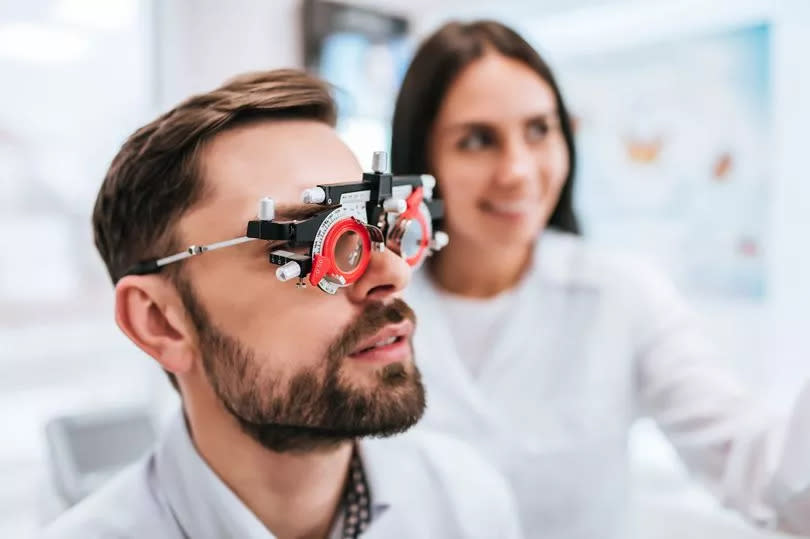Do carrots improve eyesight? Experts explain 'common myths'

We all know facts about eye care. An eye test every two years will help spot problems as they develop. Wearing eyeglasses will bring things into focus or help you read better.
Sunglasses will help protect your eyes from UV rays. But what about the myths? Will reading in the dark lead to vision loss? Can rubbing your eyes help improve your vision? Will some foods really help you see better?
The experts at Glasses.com debunk these misconceptions and uncover the truths behind them.
Myth 1: eating carrots will perfect your vision
"Contrary to popular belief, consuming carrots alone won't miraculously improve your vision," says Glasses.com. While carrots are indeed rich in beta-carotene, a precursor to vitamin A, which is essential for eye health, they won't correct vision problems on their own. A balanced diet, including carrots and other nutrient-rich foods, supports overall eye health, but it's not a cure for vision issues.
Myth 2: staring at screens leads to permanent eye damage
Excessive screen time can cause digital eye strain, characterised by symptoms like dry eyes, headaches, and blurred vision. However, Glasses.com notes that this strain doesn't result in permanent eye damage.
"Taking breaks, adjusting screen settings, and practising proper ergonomics can alleviate discomfort and minimise strain, ensuring that prolonged screen use doesn't lead to long-term issues," it said.
Myth 3: reading in low light causes vision loss
Glasses.com emphasises that while reading in dim light can strain your eyes and make it more difficult to focus, it won't cause permanent damage. However, prolonged reading in low light can lead to eye fatigue and discomfort. Optimal lighting conditions are essential for comfortable reading and reducing strain.
Myth 4: wearing glasses weakens your eyesight
Dispelling a common misconception, Glasses.com clarifies that wearing glasses doesn't weaken your eyesight. "Glasses correct refractive errors like nearsightedness or astigmatism, providing clearer vision; they don't alter the structure or function of your eyes. In fact, wearing glasses when needed can reduce eye strain and prevent headaches, promoting overall visual comfort and clarity," Glasses.com explains.
Myth 5: using eye drops can cure all eye problems
While eye drops can provide temporary relief for symptoms like dryness or redness, they don't treat underlying eye conditions. Using eye drops indiscriminately without proper diagnosis and treatment can mask symptoms of more serious issues. Consulting with an eye care professional is essential for addressing underlying problems effectively and ensuring appropriate management of eye health concerns.
Myth 6: rubbing your eyes improves vision
Many people believe that rubbing their eyes can improve vision by stimulating blood flow or enhancing clarity. However, Glasses.com explains that rubbing your eyes can actually cause more harm than good. "Rubbing the eyes vigorously can irritate the delicate tissues within and around the eye, leading to redness, inflammation, and potential damage to the cornea. Instead of rubbing your eyes, it's essential to practise proper eye hygiene and seek professional advice if you experience persistent vision issues," Glasses.com says.
Myth 7: wearing sunglasses on cloudy days is unnecessary
Some individuals think that wearing sunglasses is only necessary on sunny days when UV rays are strong. However, Glasses.com highlights the importance of wearing sunglasses even on cloudy days. "UV rays can penetrate through clouds and cause long-term damage to the eyes, increasing the risk of cataracts, macular degeneration, and other eye conditions," Glasses.com explains. "Therefore, wearing sunglasses with UV protection is crucial year-round to shield the eyes from harmful UV radiation and maintain optimal eye health."
Myth 8: staying outside for extended periods strengthens your vision
There is a common belief that spending more time outdoors can strengthen vision, particularly in children. While outdoor activities offer various health benefits, spending time outside alone does not directly improve vision. While natural light exposure is beneficial for overall well-being and may contribute to better visual acuity, it doesn't address underlying vision issues or prevent vision deterioration.
Glasses.com explains: "While outdoor activities are encouraged for physical and mental health, they should be complemented by regular eye exams and appropriate vision correction, if needed, to ensure optimal eye health.
"Accurate information is vital for maintaining optimal eye health and vision. By debunking common myths, individuals can make informed decisions and take proactive steps towards preserving their vision for years to come."

 Yahoo News
Yahoo News 
